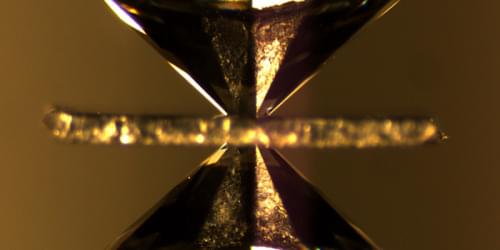The search for superconductivity in hydrogen-rich compounds known as hydrides has been an emotional rollercoaster ride for the scientific community. Excitement mounted a few years ago, as hydride experiments had physicists imagining that a Holy Grail, room-temperature superconductivity, might be within reach. But the field was shocked in 2023 by allegations of malpractice and fraud. Now a group of physicists—leading superconductivity experts who aren’t involved in hydride research—has offered an independent assessment of the available body of work on these materials [1]. They conclude that there is overwhelming evidence for superconductivity in hydrides.
“The more I read the foundational literature, and the more I learned about the way that results were being repeated, the more it became clear to me that hydride superconductivity is completely genuine,” says Andrew Mackenzie of the Max Planck Institute for Chemical Physics of Solids in Germany and the University of St Andrews in the UK.
Mackenzie was one of the initiators of the group’s work. “At conferences last spring, guys my age were having lots of young people coming up to ask: What’s going on in hydrides?” he says. After a communal discussion at a superconductivity meeting in Berlin in August, he and other researchers thought that something needed to be done to address young researchers’ concerns. They organized a group that would review available data with the goal of delivering an objective evaluation of hydride superconductivity claims, says Jörg Schmalian of the Karlsruhe Institute of Technology in Germany, who is one of the article’s cosigners.
